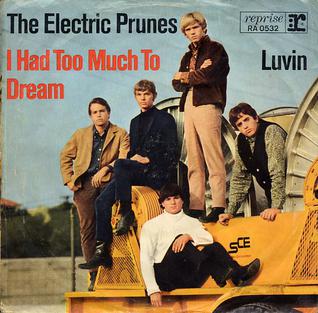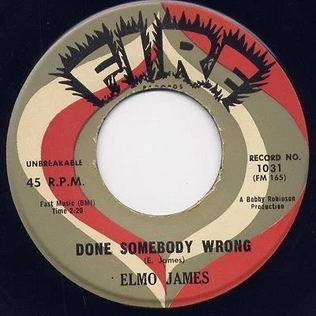
"Brown Sugar" is a song recorded by the English rock band the Rolling Stones. Written primarily by Mick Jagger, it is the opening track and lead single from their album Sticky Fingers (1971). It became a number one hit in both the United States and Canada. In the United Kingdom and Ireland, it charted at number two. In the United States, Billboard ranked it as the number 16 song for 1971.

Christmas Is Almost Here is the 19th studio album, and first Christmas album, by American singer-songwriter Carly Simon, released by Rhino Entertainment, on October 22, 2002.

Anthology is a two-disc career retrospective compilation box set by American singer-songwriter Carly Simon, released by Rhino Entertainment, on November 5, 2002.

Swept Away is the fifteenth studio album by American R&B singer Diana Ross, released on September 13, 1984 by RCA Records in North America and by Capitol Records in Europe. It was Ross' fourth of six albums released by the label during the decade.
Dyke and the Blazers was an American funk band led by Arlester Christian. The band was formed in 1965, and recorded up until Christian's death in 1971. Among their most successful records were the original version of "Funky Broadway" (1966) and "Let a Woman Be a Woman" (1969).

Randy Holden is an American guitarist best known for his involvement with the West Coast acid rock group Blue Cheer on their third album, New! Improved! (1969). Additionally, he is a painter. His album Population II from 1970 is considered to be one of the earliest examples of doom metal.

"I Had Too Much to Dream (Last Night)" is a song written with music by Annette Tucker and lyrics by Nancie Mantz, which was recorded in late 1966 by the garage rock band The Electric Prunes. Released as the band's second single, it reached number 49 in the UK and peaked at number 11 on the Billboard Hot 100 the week ending February 11, 1967.
"Soul Kitchen" is a song by the Doors from their self-titled debut album The Doors. Singer Jim Morrison wrote the lyrics as a tribute to the soul food restaurant Olivia's in Venice Beach, California. Because he often stayed too late, the staff had to kick him out, thus the lines "let me sleep all night, in your soul kitchen".
The Other Half was an American psychedelic garage rock band, based in San Francisco, and active in the mid-to-late 1960s. The band gained interest after one of the Nuggets compilations in the 1980s included their single, "Mr. Pharmacist".

Greatest Hits: Songs from an Aging Sex Bomb is a compilation album by American country music artist K. T. Oslin, released by RCA Records in 1993. "A New Way Home", a re-recording of a track from her Love in a Small Town album, and "Feeding a Hungry Heart" were the only singles released from the project. The album also includes a re-recording of Oslin's 1988 hit "Hold Me". The album reached number 31 on the Billboard Top Country Albums chart.

"Kick It in the Sticks" is a song co-written and recorded by American country music singer Brantley Gilbert. It was originally released in 2010 and re-released in 2012 as a single from his album Halfway to Heaven via the Valory Music Group. The song was by Gilbert, along with Rhett Akins and Ben Hayslip.
The Soulful Strings were an American soul-jazz instrumental group formed in Chicago in 1966. Predominantly a studio band, the project was created and led by Richard Evans, a staff producer and musical arranger with the Chess Records subsidiary Cadet Records.
Ranky Tanky is an American musical ensemble based in Charleston, South Carolina, United States. It specializes in jazz-influenced arrangements of traditional Gullah music, a culture that originated among descendants of enslaved Africans in the Lowcountry region of the US Southeast. Apart from lead vocalist Quiana Parler, four of the group's members, Quentin Baxter, Kevin Hamilton, Clay Ross, and Charlton Singleton, previously played together in the Charleston jazz quartet The Gradual Lean in the late 1990s.

As Long as I'm Singing: The Bobby Darin Collection is a four-disc box set, released in 1995 by Rhino.

Vince Guaraldi and the Lost Cues from the Charlie Brown Television Specials is a compilation soundtrack album by Vince Guaraldi released by D & D Records in 2007. The album consists of select music cues featured on several Peanuts television specials produced between 1972 and 1975.

Vince Guaraldi and the Lost Cues from the Charlie Brown Television Specials, Volume 2 is a compilation album by Vince Guaraldi released by D & D Records in 2008. The album is a follow-up to the 2007 release, Vince Guaraldi and the Lost Cues from the Charlie Brown Television Specials, which consisted of previously unreleased music cues featured on several Peanuts television specials produced in the 1970s.

"The Changeling" is a song by the American rock band the Doors. It appears as the opening track on their sixth album and final with Jim Morrison, L.A. Woman. It was also released as the B-side of "Riders on the Storm" which peaked at number 14 on the Billboard Hot 100 chart.

"I Must Have Done Somebody Wrong" is a blues song written and recorded by Eddie Kirkland in 1959. Using the same lyrics but modifying aspects of the music, Elmore James recorded it as "Done Somebody Wrong" in 1960; he took sole writing credit for it and it came to be known as an Elmore James song. "Done Somebody Wrong" was interpreted by the Allman Brothers Band in 1971 and featured on their classic live album At Fillmore East. As Billboard magazine has stated, the song became "more associated with the Allmans than with James in the end."













